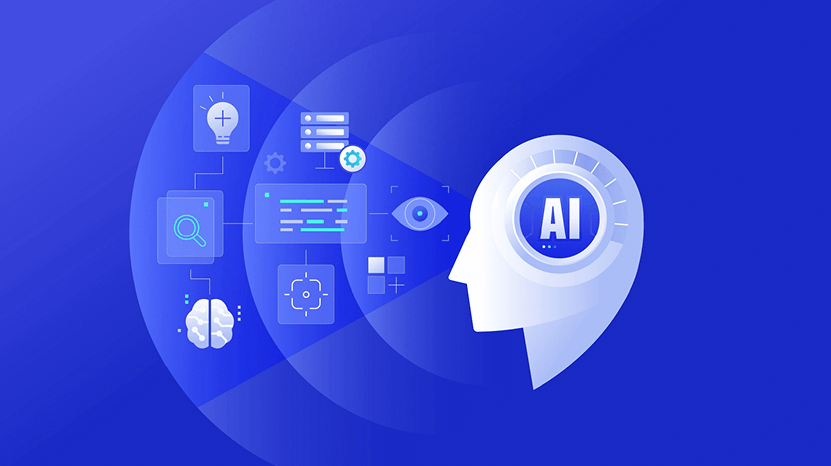- 0243394034
- info@centralcoastseo.com.au
- Google 1st Pages Guaranteed in Writing.
Human Creativity Still Reigns Supreme in SEO Content

Human Creativity Still Reigns Supreme in SEO Content
I’ve witnessed firsthand the meteoric rise of artificial intelligence in SEO strategies. The allure of AI – automating keyword research, streamlining content creation, and seemingly effortlessly optimising for search engines – is undeniable. It promises a revolutionary solution, a shortcut to faster content production with minimal human input. However, in my experience, like any powerful tool, AI-driven content creation carries inherent risks that can ultimately undermine the very success it aims to achieve. While AI-generated content might offer a tempting path to quick SEO wins, I believe its long-term impact on search rankings, genuine audience engagement, and overall content quality demands careful consideration. In this analysis, I’ll delve into the limitations of AI in content creation, explore the dangers of over-reliance on automation, and explain why, in my considered opinion, human creativity remains absolutely indispensable for a truly effective SEO strategy.
AI in SEO Content Creation Being A Double-Edged Sword
AI tools have become increasingly sophisticated. They can now analyse top-ranking pages, identify recurring patterns, and generate structured content that mimics the characteristics of high-performing articles. The underlying premise is simple: if AI can discern what works, it can replicate those strategies to boost rankings. This approach offers significant time and resource savings, making it incredibly appealing to content creators and digital marketers. However, I believe the implications of this automation are far more nuanced than they initially appear.
The Pitfalls of AI-Generated Content
Content Homogeneity and the Erosion of Originality
One of the most significant drawbacks of AI-generated content, in my view, is the inevitable homogenisation of web pages. When AI tools create content by drawing heavily on existing top-ranking pages, they naturally produce material that is structurally and thematically similar to what’s already out there. While this might seem advantageous in the short term, I argue that it ultimately diminishes the diversity of search results. Users are repeatedly exposed to the same ideas, the same phrasing, which reduces the richness and depth of information available. Google and other search engines, in my understanding, strive to promote varied perspectives, and websites that fail to offer unique insights, in my opinion, will struggle to maintain their rankings in the long run.
Ideas and Repetitive Content
Even when AI avoids direct text duplication, it frequently replicates the underlying ideas and concepts presented in existing content. I refer to this as “idea plagiarism,” and it results in a saturation of repetitive information across multiple websites. Search engines, in my experience, are becoming increasingly adept at recognising these patterns and penalising sites that contribute to this redundancy. If a page, in my analysis, fails to provide additional value beyond what already exists, its long-term ranking potential is severely compromised.
Search Engine Penalties
Search engines, in my opinion, prioritise user experience and high-quality, informative content. AI-generated content that lacks depth, originality, and genuine engagement can trigger penalties, leading to reduced rankings. Google’s algorithm updates, such as the Helpful Content Update, are, in my view, designed to detect and down-rank pages that fail to provide unique and valuable insights. AI-generated material that merely rehashes existing content without offering new perspectives, in my experience, is unlikely to sustain long-term SEO success.
Stifling Creativity
Perhaps the most concerning aspect of AI-driven content creation, in my opinion, is the suppression of human creativity. By relying on AI to dictate content structure and themes, marketers risk producing articles that lack personal insight, unique perspectives, and demonstrable industry expertise. The most effective SEO strategies, in my experience, involve thought leadership – content that presents original analysis, expert opinions, and innovative solutions. AI, no matter how advanced, cannot, in my view, replicate human creativity, experience, and intuition. Without these crucial elements, content becomes generic and fails to establish a brand’s authority within its field.
User Engagement
Another significant consequence of AI-generated content, in my experience, is its impact on user engagement. Readers, in my view, seek content that is informative, engaging, and thought-provoking. If a page offers nothing new or compelling, users are likely to leave quickly, searching for better information elsewhere. High bounce rates and low time-on-page metrics send negative signals to search engines, indicating that the content is failing to meet user needs. Over time, this can result in lower rankings and reduced visibility in search results.
Semantics and TF-IDF
Rather than relying solely on AI-generated content, I advocate for a more strategic approach that leverages semantic analysis and TF-IDF (Term Frequency-Inverse Document Frequency) to create high-quality, optimised content. Semantic analysis, in my view, allows content creators to craft articles that establish meaningful relationships between concepts, providing deeper insights. This enhances content relevance and encourages a richer, more natural writing style that appeals to both search engines and human readers. Meanwhile, TF-IDF analysis helps identify the most relevant terms for a given topic, ensuring comprehensive coverage without falling into the trap of content duplication. By focusing on these principles, SEO professionals can, in my experience, create content that is both optimised and highly valuable to users.
AI as a Tool, Not a Tyrant
AI undeniably offers advantages in the field of SEO. It can enhance efficiency, streamline workflows, and assist in research and data analysis. However, I firmly believe it should be viewed as a complement to human creativity, not a substitute for it. The most effective approach to SEO content creation, in my opinion, involves using AI as an enabler – leveraging its capabilities for research and optimisation while maintaining human oversight and originality in the writing process. By integrating AI responsibly, marketers can harness its benefits without sacrificing authenticity and genuine engagement. This means using AI tools to assist with content structuring, identifying trending topics, and improving readability, while ensuring that the final content is crafted by human experts who bring unique insights and real value to the table.
Why Balance is the Key
The future of SEO, in my view, lies in striking the right balance between automation and human creativity. While AI has undoubtedly revolutionised digital marketing, over-reliance on AI-generated content can lead to homogeneity, reduced engagement, and potential search engine penalties. To succeed in the long term, businesses must focus on original, well-researched, and thought-provoking content that prioritises user experience above all else. AI is a powerful tool, but it is not a replacement for human expertise. The most successful SEO strategies, in my experience, will be those that combine the efficiency of AI with the creativity, critical thinking, and authenticity of human content creators. By maintaining this crucial balance, businesses can build a strong, engaging, and sustainable online presence that thrives in the ever-evolving digital landscape.
Central Coast SEO, with years of experience and a results-driven approach, we help businesses achieve sustained growth in the digital advertising landscape.


















